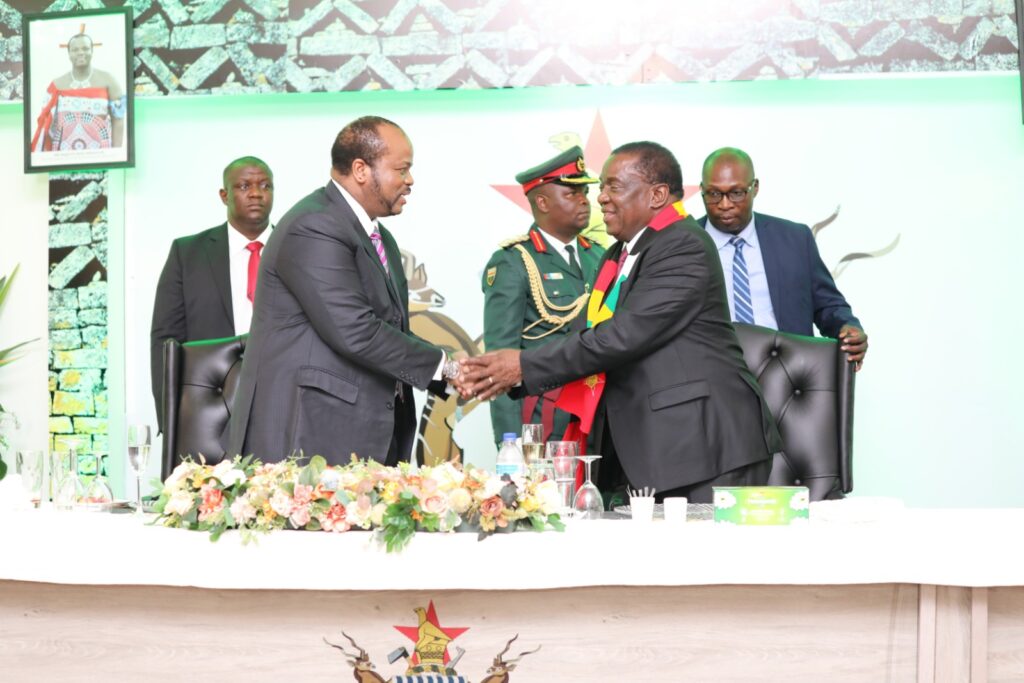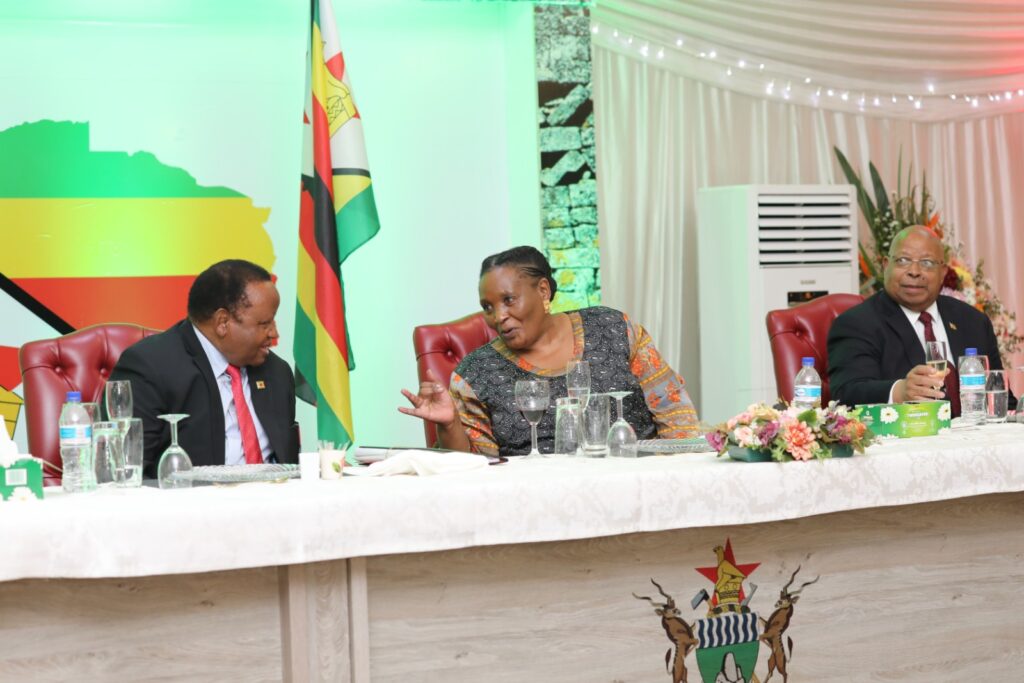
By King’s Office Correspondents
Harare, Zimbabwe: Trade between Zimbabwe and Eswatini runs into the billions of Emalangeni. However, His Majesty the King has described this value as insignificant and has challenged the country to raise the figures.
Statistics show that Eswatini imports over two billion US Dollars (about E37 billion) worth of goods per annum, while Zimbabwe imports over 5.6 billion US Dollars worth of goods per year.
Speaking at the Zimbabwe International Trade Fair yesterday, His Majesty noted that Zimbabwe and Eswatini are members of both the common market for Eastern and Southern Africa (COMESA) and SADC, which enables the two countries to do business without technical trade barriers.
Intra-Africa Trade
“I therefore would like to call for closer trade and investment collaboration between Eswatini and Zimbabwe. We make this call at a time when most African countries, including ourselves, are operationalizing the Africa Continental Free Trade Agreement (ACFTA). When it is fully operational, there should be seamless trade and business transactions between Eswatini and Zimbabwe.”
To address the challenges associated with the low levels of intra- Africa trade, the King said governments must make a conscious intent
to do business with each other as African countries.
Read More: Eswatini Air must fly to Victoria Falls – Mnangagwa
“This will go a long way in creating jobs for our economies and eradicating poverty from Africa. To support this, the smooth movement of goods across our borders must be enhanced. Infrastructure and interconnectivity must be given priority, including the removal of all
bottlenecks in trade,” His Majesty said.

The King further said that digital trade must be the new normal in Africa, and Zimbabwe should be one of the countries that take the lead in this, alongside Eswatini.
GDP
“In our view, liberalisation of trade in services, which also includes the movement of business persons, will be a positive step. This allows our private sector, especially small, medium and micro enterprises to travel across the African continent without any stringent and sometimes prohibitive visa entry requirements and customs duties,” he said.
The King reminded the gathering that Africa, with a population of more than 1.3 billion consumers and a combined gross domestic product (GDP) of more than 3 trillion us dollars, should be and is capable to support herself and ensure self-sustainability into the future.
The 63rd Zimbabwe International Trade Fair, 2023 with 533 exhibitors has seen a 30 per cent increase in foreign exhibitors from last year and the King commended the country for hosting and growing this event over the years.
His Majesty described the ZITF as a corner pillar and a very important platform to boost and stabilize the economy, not only for Zimbabwe but for the SADC region and Africa as a whole.
Read More: Eswatini Air’s Zimbabwean deal to boost tourism
“You will agree with me that there are always spillover effects between economies. When one country prospers, its neighbours and the region benefit from such outflows. In the same vein, when one economy struggles and suffers, the ripple effects still pour into the neighbouring countries,” Hi Majesty said.
Raw Materials
The head of state added that trade fairs were important because they facilitate the African industrialization agenda which seeks to promote
value addition for goods to move away from trade in raw materials. His Majesty lauded Zimbabwe, which has been through turbulent times, for
continuing to strive economically and peacefully, proving to be one of the most resilient economies in Africa.
“This is a great demonstration to the world that Africa can find and implement her solutions to issues and cases that are uniquely
African,” he said.
The theme set for this year’s trade fair is, “transformative innovation, global competitiveness.” His Majesty described the theme as setting a tone that will guide the business and trade community to focus on transformative innovations that will also put Zimbabwe in a competitive position in the global markets.
Read More: EU Carbon tax will not squeeze Eswatini exports but…
“We call upon all exhibitors to take this standard seriously in ensuring that the innovations you have are of high-value addition and find a place of recognition in the markets that are available in the region and globally as you have been challenged,” he said.

Before the speech, His Majesty, together with Zimbabwean President Emerson Mnangagwa took a tour of the exhibition stands where he
witnessed various developments in the private, public and diplomatic sectors. The King was later asked to present awards to the various
winners among the exhibitors before departing for Harare.
Self Sufficient
Meanwhile, the Minister for Industry and Commerce has praised Mnangagwa for his leadership towards motivating the growth of the country which aims to become an upper middle-income country by 2030. She said the president had tasked the citizens to become more self-sufficient by reducing imports and increasing productivity through being innovative.
She said the government had been given the mandate to grow its private sector relations for meaningful results in economic growth.
Read More: King Mswati III visits New Zimbabwe Parliament
“We are already seeing tangible results from the country’s development strategy as we now have food security. We are also anticipating economic growth to reach 3.4 per cent which is higher than projected average growth in the region,” she shared.
The Minister also said the country would realise increased production in the mining and agriculture sectors, while expecting to receive the
highest wheat production ever this year.
“Through agro-processing will have enough food for our people and we will continue to invest in technology to give us food security,” she
said.






